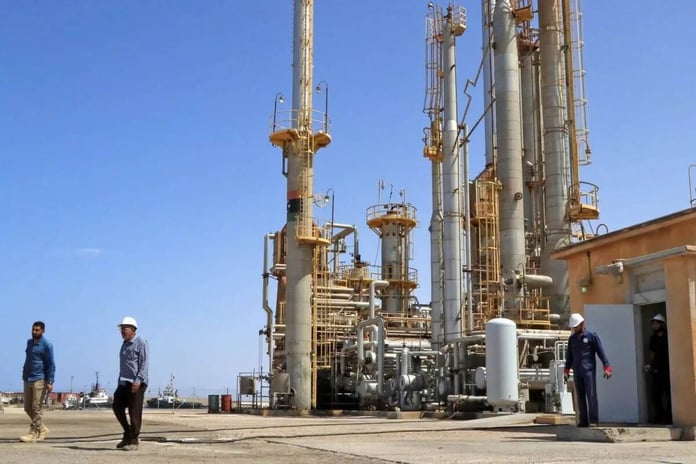
Libya announced that the crisis of closing oil fields and ports and preventing its export by protesters from the people of a number of oil regions caused the country to lose 60 million dollars a day.
This came from the Minister of Oil in the Government of National Unity, Mohamed Aoun, during a meeting with the Prime Minister, Abdel Hamid Dabaiba, in the presence of the heads of the General Intelligence Service, the General Staff, and the Petroleum Facilities Guard.
According to a video clip carried by government-affiliated pages today, Minister Aoun said, addressing the Prime Minister, “Because of the lack of exports, Libya loses about 500,000 barrels per day every day, and given that the average price of a barrel is more than $100, this means that we lose about $60 million per day.”.
He continued, “This is in addition to other losses, such as not supplying power stations with fuel, which will lead to frequent power outages for citizens.”
In his speech, the minister also stressed, “The country was exposed to losses in the oil infrastructure and the oil reservoirs themselves were damaged due to the forced closure.”
Earlier today, the “Our Government” platform on Facebook published part of Dabaiba’s statements in which he said that he directed the security and military agencies to take all possible measures to deal with the crisis of closing oil fields and ports in his country.
During his speech, Dabaiba called on the Attorney General to “open an immediate investigation into the closures that took place in oil ports and fields and all those involved in them.”
During the past three days, Libya witnessed a wave of closures of a number of oil fields and ports by social components in the south, central, southwest and east of the country.
The people in charge of the closures demanded, in video statements, that the “national unity government headed by Dabaiba should leave the scene and hand over power to the government designated by Parliament headed by Fathi Bashagha.”
All this comes in light of the rising fears that the country will descend into civil war after the division that occurred against the background of the inauguration of the House of Representatives, Fathi Bashagha, as head of a new government instead of the national unity government headed by Dabaiba, which refuses to hand over power except to a government that comes according to a new elected parliament.












